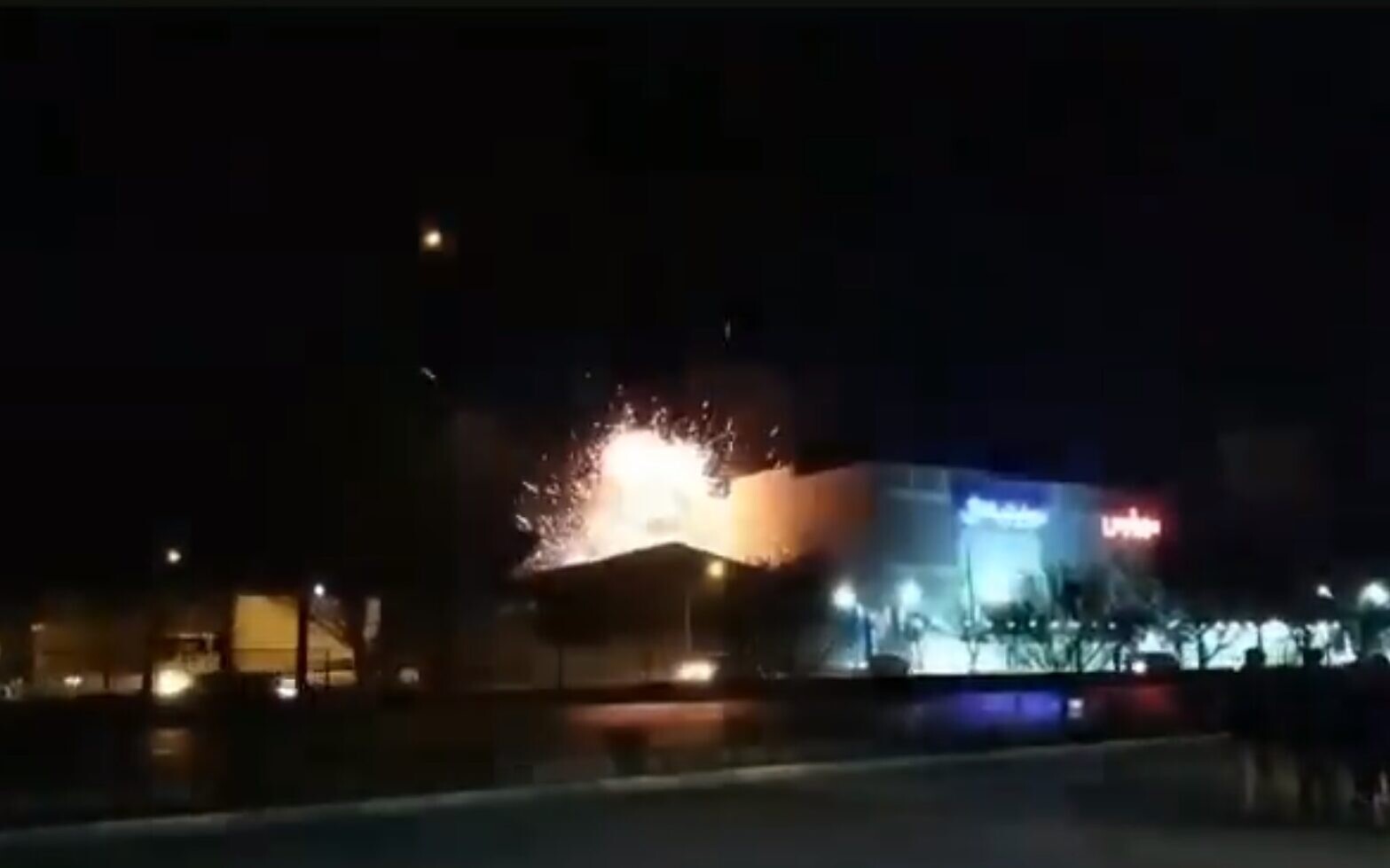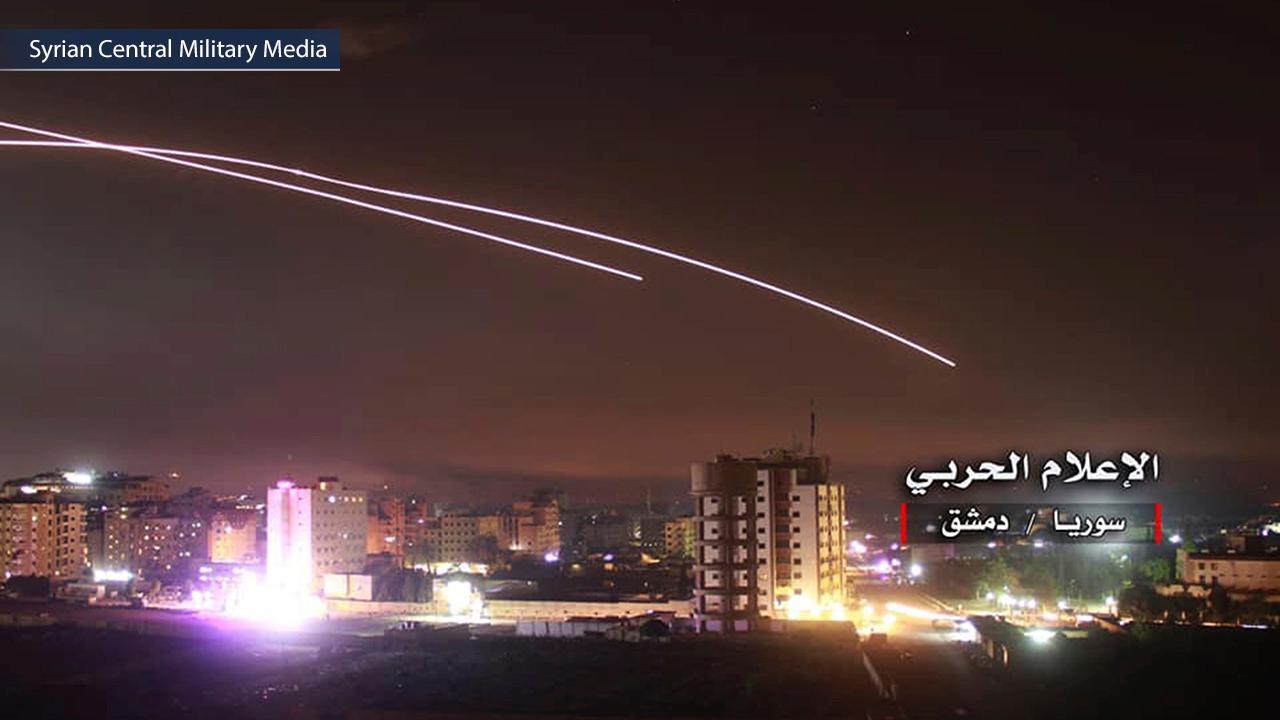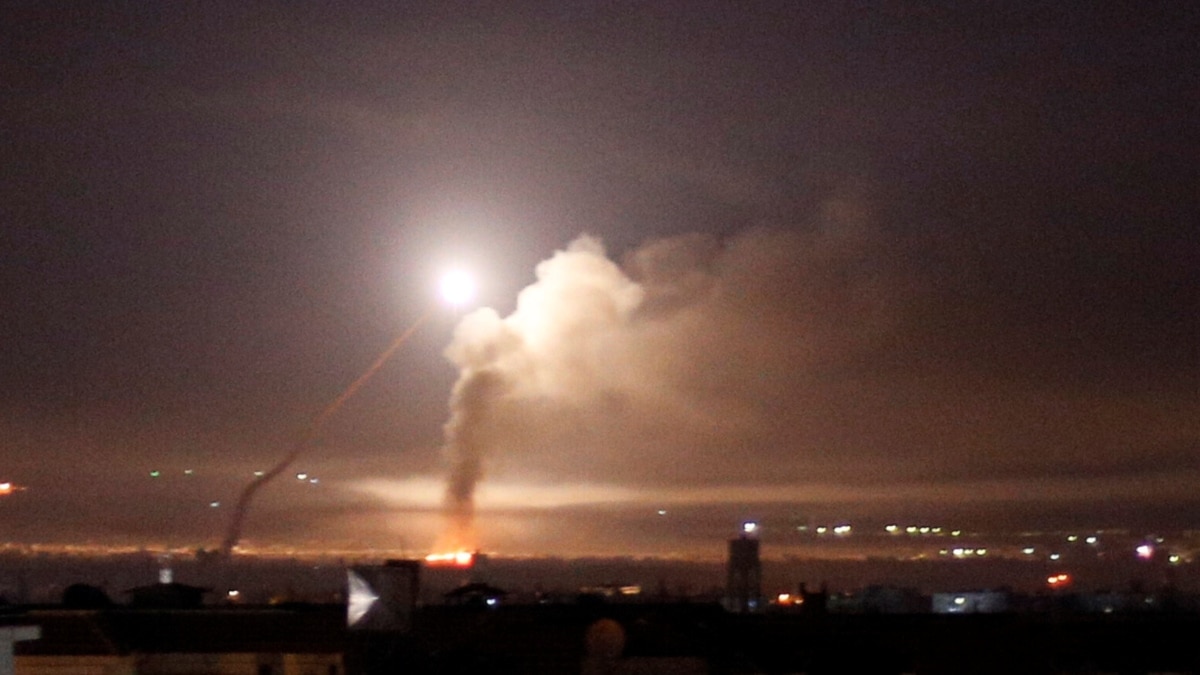Historical Context of Iran-Israel Tensions: Iran Attack Israel Israeli

The relationship between Iran and Israel has been fraught with tension for decades, fueled by a complex web of historical, ideological, and geopolitical factors. The conflict is rooted in a history of mistrust and animosity, stemming from the 1979 Islamic Revolution in Iran, the Iran-Iraq War, and the rise of Hezbollah. These events have shaped the current state of affairs, leading to a constant state of heightened tensions between the two nations.
The 1979 Islamic Revolution and the Rise of Anti-Israel Sentiment
The 1979 Islamic Revolution in Iran marked a significant turning point in the relationship between Iran and Israel. The revolution, led by Ayatollah Ruhollah Khomeini, overthrew the pro-Western Shah Mohammad Reza Pahlavi and established an Islamic Republic. This event ushered in a period of anti-Western and anti-Israeli sentiment, fueled by the belief that Israel was an illegitimate entity created through the displacement of Palestinians. The new Iranian government, under the leadership of Khomeini, viewed Israel as a threat to its security and regional interests.
The Iran-Iraq War (1980-1988)
The Iran-Iraq War further exacerbated tensions between Iran and Israel. Although Israel did not directly participate in the war, it provided intelligence and support to Iraq, particularly during the latter stages of the conflict. This support was seen by Iran as a sign of Israeli hostility and further fueled the animosity between the two nations. The war also saw the emergence of Hezbollah, a Lebanese Shia militia backed by Iran, which played a significant role in the conflict.
The Rise of Hezbollah and the Role of the United States
Hezbollah, founded in 1982, emerged as a powerful force in Lebanon, receiving support from Iran and Syria. The group has been involved in numerous attacks against Israel, including the 1992 bombing of the Israeli embassy in Buenos Aires and the 1994 bombing of the AMIA Jewish community center in Argentina. The United States, a strong supporter of Israel, has condemned Hezbollah as a terrorist organization and has imposed sanctions against Iran for its support of the group. The United States has also been a key player in the conflict, providing significant military and economic aid to Israel, and imposing sanctions against Iran.
Military Capabilities and Strategies

A comparison of the military capabilities and strategies of Iran and Israel reveals a complex and volatile dynamic in the Middle East. While both nations possess sophisticated military forces, their strengths and weaknesses, doctrines, and strategic objectives differ significantly, shaping the potential consequences of any conflict.
Military Capabilities
The military capabilities of Iran and Israel are a testament to their commitment to national security. Iran possesses a large and diverse military force, including a formidable ground force, a sizable air force, and a growing naval fleet. Israel, on the other hand, has a smaller but highly technologically advanced military, renowned for its air power, intelligence capabilities, and advanced weaponry.
- Iran’s Military: Iran’s military is characterized by its sheer size and its focus on conventional warfare. It has a large active-duty military, with an estimated 523,000 personnel, and a reserve force of approximately 350,000. Iran’s ground forces are equipped with a wide range of tanks, armored vehicles, and artillery systems. Its air force, while relatively old, includes fighter jets, bombers, and helicopters. Iran’s navy is also expanding, with a growing fleet of submarines, warships, and patrol boats.
- Israel’s Military: Israel’s military, known as the Israel Defense Forces (IDF), is smaller than Iran’s but is considered one of the most technologically advanced and effective militaries in the world. It has a standing force of approximately 170,000 personnel and a reserve force of around 450,000. The IDF excels in air power, with a sophisticated fleet of fighter jets, attack helicopters, and drones. It also possesses advanced missile defense systems, such as the Iron Dome, and a highly effective intelligence network.
Weapons Systems
The weapons systems employed by Iran and Israel reflect their distinct military strategies and priorities. Iran relies heavily on domestically produced weapons, while Israel has traditionally relied on advanced weaponry imported from the United States and other Western countries.
- Iran’s Weapons Systems: Iran’s weapons systems are a mix of domestically produced and imported equipment. It has developed a range of ballistic missiles, including the Shahab-3 and the Emad, which are capable of reaching Israel. Iran also possesses a variety of short-range missiles, artillery systems, and small arms. It has been working to develop advanced weapons systems, including drones and cruise missiles.
- Israel’s Weapons Systems: Israel’s weapons systems are characterized by their advanced technology and precision capabilities. It has a wide range of fighter jets, including the F-35, and attack helicopters, such as the Apache. Israel also possesses advanced missile defense systems, including the Iron Dome and the Arrow, designed to intercept incoming missiles. It has a robust military industry that produces a variety of weapons systems, including tanks, artillery, and small arms.
Strategic Alliances
Both Iran and Israel have developed strategic alliances that provide them with support and access to advanced weaponry. Iran has strong ties with Russia and China, which have provided it with military and economic assistance. Israel, on the other hand, has a close relationship with the United States, which provides it with significant military and financial support.
- Iran’s Strategic Alliances: Iran’s strategic alliances with Russia and China have provided it with access to advanced weaponry and technology. Russia has supplied Iran with S-300 air defense systems and other military equipment. China has also provided Iran with military and economic assistance, including investments in its infrastructure.
- Israel’s Strategic Alliances: Israel’s close relationship with the United States has been a cornerstone of its national security. The United States provides Israel with billions of dollars in military aid annually, and it has sold Israel advanced weapons systems, including F-35 fighter jets. Israel also has close ties with other Western countries, such as France and Germany.
Military Doctrines and Strategies
The military doctrines and strategies of Iran and Israel reflect their respective security concerns and geopolitical ambitions. Iran’s “defense in depth” strategy emphasizes a layered defense system designed to deter and repel any invasion. Israel, on the other hand, has adopted an “offensive deterrence” strategy, which aims to deter aggression through the threat of a swift and decisive response.
- Iran’s “Defense in Depth”: Iran’s “defense in depth” strategy is based on the idea of creating multiple layers of defense, making it difficult for an enemy to penetrate its territory. This strategy relies on a combination of conventional forces, missile systems, and unconventional tactics, such as asymmetric warfare.
- Israel’s “Offensive Deterrence”: Israel’s “offensive deterrence” strategy is based on the idea of deterring aggression by demonstrating a willingness and capability to launch a swift and decisive counterattack. This strategy emphasizes the use of air power, precision strikes, and intelligence gathering.
Potential Consequences of a Military Conflict
A military conflict between Iran and Israel would have devastating consequences for the region and potentially the world. The potential consequences include regional escalation, the use of nuclear weapons, and a humanitarian crisis.
- Regional Escalation: A military conflict between Iran and Israel could easily escalate into a wider regional conflict, involving other countries in the Middle East. This could lead to a proxy war between Iran and its allies and Israel and its allies, further destabilizing the region.
- Use of Nuclear Weapons: While neither Iran nor Israel has officially acknowledged possessing nuclear weapons, there are concerns that a conflict could lead to the use of such weapons. The potential consequences of a nuclear attack would be catastrophic, with widespread destruction and long-term environmental damage.
- Humanitarian Crisis: A military conflict between Iran and Israel would result in significant civilian casualties and displacement. The conflict could also disrupt vital infrastructure, leading to food shortages, water contamination, and disease outbreaks.
Regional and International Implications

The tensions between Iran and Israel have far-reaching consequences that extend beyond the immediate conflict. They significantly impact the stability of the Middle East and have implications for the international community. Understanding these broader implications is crucial for navigating the complexities of the region and promoting peace.
Impact on Middle East Stability
The Iran-Israel conflict contributes to a volatile and unpredictable security environment in the Middle East. The potential for escalation, proxy conflicts, and regional arms races creates a climate of uncertainty and mistrust. The involvement of regional actors further complicates the situation.
- Saudi Arabia: Saudi Arabia, a regional rival of Iran, views Israel as a potential ally in countering Iranian influence. This dynamic has led to a complex web of alliances and counter-alliances, contributing to regional instability.
- Turkey: Turkey, a NATO member with historical ties to both Israel and Iran, has sought to play a mediating role in the conflict. However, Turkey’s own ambitions in the region and its complex relationship with Iran have made it difficult to act as a neutral broker.
International Implications
The Iran-Israel conflict has significant international implications, impacting global security and diplomacy.
- United Nations: The UN has been involved in efforts to de-escalate the conflict, but its role has been limited due to the political divisions within the Security Council. The conflict has also been a source of tension between the US and its allies, who support Israel, and countries like Russia and China, which have closer ties to Iran.
- Global Intervention: The possibility of global intervention in the conflict remains a significant concern. The potential for a wider war, involving regional powers and international actors, raises the stakes and underscores the need for diplomacy and conflict resolution.
Challenges and Opportunities for Diplomacy, Iran attack israel israeli
Resolving the Iran-Israel conflict presents significant challenges, but also offers opportunities for diplomacy.
- Nuclear Non-Proliferation: The Iranian nuclear program has been a major source of tension, raising concerns about the potential for a nuclear-armed Iran. Addressing these concerns through diplomacy and international agreements is crucial for regional and global security.
- Regional Security Arrangements: Establishing regional security arrangements that address the concerns of all parties involved is essential for promoting stability and preventing further escalation. This could involve confidence-building measures, arms control agreements, and dialogue on shared security concerns.
- Economic Cooperation: Economic cooperation between Iran and Israel, though seemingly unlikely at present, could create a framework for mutual benefit and reduce the potential for conflict.
Iran attack israel israeli – The whole Iran attack on Israel thing is proper mental, innit? If you wanna get the lowdown on what’s happening, check out some israeli news sites. It’s all a bit of a mess, but it’s definitely worth keeping an eye on.
Right, so the whole Iran-Israel thing is a bit of a mess, innit? Like, it’s all over the news, everyone’s talking about it. But you know what’s even more messed up? Legionnaires’ disease in Lincoln, New Hampshire. That’s proper scary, man.
Anyway, back to the Iran-Israel situation, it’s just a whole load of drama, isn’t it?
